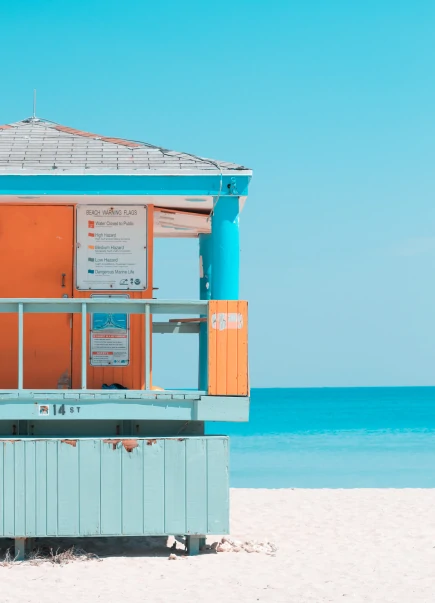

The drug, 3,4-methylenedioxymethamphetamine (MDMA), is a well-known "party drug" used for its stimulant effects. It can cause sensory changes and increase risky behavior. MDMA has a highly addictive tendency - frequent consumption quickly leads to dependence and abuse.
MDMA is called by several names, namely ecstasy, XTC, Molly, and comes in pill, tablet, liquid, or powder form. It's a hallucinogen even at low doses; thus, it gives a distorted perception of reality. However, it is more widely known for its role in enhancing one's mood, energy, sexual drive, and empathy.
Unfortunately, like most drugs, MDMA has side effects ranging from mild to severe. Addictive use of the MDMA drug has life-threatening consequences.
Ecstasy doesn’t follow the same addiction patterns as opioids like heroin, but it can be addictive. Before causing addiction, ecstasy triggers dependence and tolerance. Because it gives a nice, long-lasting high, first-time users find themselves seeking the drug out time and time again, which eventually leads to a build-up of tolerance.
Users may find that over time, they will need to take more ecstasy to feel the same level of high they once experienced with a single pill. These two factors set the pace for addiction.
It isn’t clear whether MDMA itself has the potential to cause addiction because according to the US Drug Enforcement Administration many ‘ecstasy’ pills on the streets are really not MDMA at all. Other substances that are mixed with it have the potential to cause addiction hence it's difficult to determine if MDMA causes addiction.


Ecstasy addiction causes one to display signs and symptoms similar to other substance abuse conditions. However, there are specific signs to look out for in a person addicted to ecstasy. These signs include the following:
The person may feel symptoms of increased nervous system stimulation, for example:
Other signs and symptoms of MDMA addiction are psychological. For example, the person experiences an intense craving for MDMA and wants to miss school or work to relish the emotional euphoria. They start being secretive about it or feel they must take the drug to stay sane. Increased feelings of paranoia can be a sign of MDMA addiction, too.
Ecstasy use may initially feel right: you may feel excited and experience an overpowering sense of well-being. However, over time, these effects start to cause damage to the body and the mind. Below are some of the effects, signs, and symptoms that Ecstasy may have on the body.
This is the underlying cause of addiction in most people who take ecstasy. They feel a euphoric high attributed to increased secretion of dopamine and serotonin in the brain. Hence the mood changes and pleasant feeling they get from it. But using ecstasy over time produces counter results marked by alternating periods of highs and lows.
This phenomenon occurs because the drug depletes the neurotransmitters in the brain (dopamine, serotonin, and norepinephrine). The effects damage the nervous system in terms of memory, cognitive disturbances, and depression.
Apart from its effects on the mind, ecstasy can affect the body and overall well-being. For example, people who abuse the drug usually suffer with dilated pupils, increased heart rate, and high blood pressure. These are extensions of the effects of increased norepinephrine in the bloodstream.
It can also induce a steady rise in core body temperature. It is important to note that prolonged exposure to MDMA increases the risk of liver and kidney damage.


Those who are addicted to drugs often feel alone and ostracized. You can bridge this gap by learning about their addiction and its therapy options. This can help you understand them more and assure them that recovery is possible.
Addiction is easier to overcome with support groups led by experienced professionals. You can convince your friend or loved one to visit a rehab center like Vita Recovery, where they can begin the climb back to freedom.
Caring for an addict is no easy task, and it is sure to take a mental toll on friends and loved ones. As a friend or caretaker, you may harbor resentment or anger. Seeking counseling will help you unpack the emotional baggage, which will, in turn, make you better assist for them.
It may be hard to keep saying no when a friend or loved one that is suffering from addiction asks for money to buy drugs or to pay their bills, but you have to put your foot down for their sake. Allowing them to feel the brunt of their addiction can hasten them toward recovery.


Treatment duration typically depends on the extent of addiction and a person's commitment to their rehab appointments. In most cases, recovery takes no longer than 90 to 120 days if one adheres strictly to the treatment regimen.
Unfortunately, many people don't take their treatment seriously, so they take longer than usual to get treated. However, taking regular rehab sessions is equivalent to reducing the treatment duration. Also, the longer the course, the greater the chances of recovery success.
The importance of seeking early treatment can't be overemphasized since continued MDMA usage can destroy a person's overall wellbeing. Aside from its effect on the person, ecstasy addiction soon affects their relationship and ability to properly fulfill their obligations.
To avoid extreme deterioration and for a higher chance of success, you must know when to seek treatment. You should know it's time to treat an ecstasy addiction when you notice any of the following:

There are three main stages to ecstasy recovery; detoxification, treatment, and recovery maintenance.
We initiate therapy by performing a medical detox under the supervision of experienced medical staff. A detox comes with withdrawal symptoms like depression, paranoia, confusion, and insomnia showing up in the first three days.
Detoxing from ecstasy is not painful, but it will cause significant psychological and mental duress. Our team of medics will administer antidepressants to ease your discomfort.
Next, we begin treatment through any of the above-listed treatment options. Lastly, we make sure that you can stand on your own feet by employing rehab aftercare procedures such as the 12-step program, weekly check-ins, and relapse-prevention classes.

At Vita Recovery, our expert Miami team creates compassionate customized care programs to fit your unique needs. Our partial hospitalization treatment is a program involving highly structured and planned days and the length of the program depends on your unique needs. Our intensive outpatient program ranges from four to six weeks, depending on the clinical needs of our clients.
At Vita Recovery, we work with most major health insurance providers. All insurance companies differ, so the coverage provided will vary. Most policies provide coverage for a set amount of time. We are happy to help you determine your coverage extent and its applicability to our treatment center.
Contact our team to discuss payment options.
Depending on individual needs, and medical conditions, treatment may be undergone on an intensive outpatient basis with high levels of efficacy. We offer three customizable outpatient options, and will gladly work with you to create an optimal recovery plan suitable for your needs.

Here, at Vita Recovery, we understand that MDMA addiction treatment requires attention to detail. While most of our clients experience similar symptoms, they respond differently to treatment and therapy.
Hence, we first deduce the addiction's cause before designing a treatment plan for our client. Next, we help you discover better ways to manage your emotions and pursue rewarding hobbies without the destructive downtimes that come with ecstasy use.


